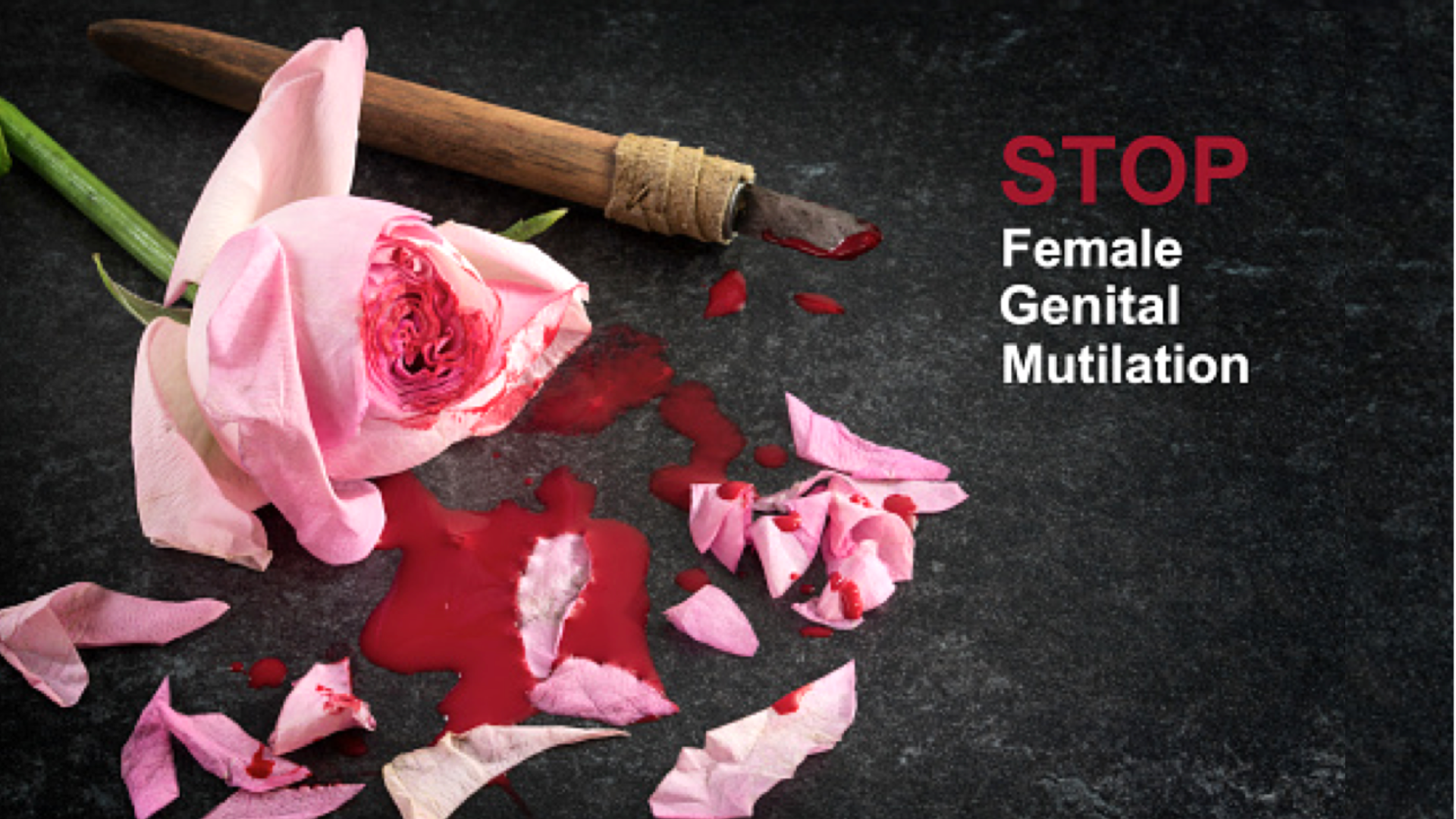‘On the International Day of Zero Tolerance for Female Genital Mutilation, join us in calling to accelerate investment to end female genital mutilation and uphold the human rights of all women and girls.’ UN Secretary-General António Guterres, February 6th

What is FGM?
‘According to the World Health Organisation, female genital mutilation (FGM), comprises of “all procedures involving partial or total removal of the external female genitalia or other injury to the female genital organs for non-medical reasons.” A harmful practice with no health benefits, FGM can cause long-lasting physical, emotional, and psychological trauma, and in some cases, death’ (FORWARD - Violence Against Women & Girls - FGM).
At least 200 million women and girls worldwide are affected by FGM. It is practiced in many countries across the world and in some communities living in the UK. There are approximately 137,000 women and girls living with the effects of FGM in England and Wales and 60,000 at risk. London has the highest national prevalence for any city with an estimated 2.1% of women affected by FGM. There is a high prevalence in some London authorities such as Southwark, Brent, Lambeth, Ealing, however, no local authority in the UK is free from FGM. (Report about FGM in England & Wales - Trust for London/ Equality Now).
FGM can be carried out at any age from birth onwards to teenagers and women, depending on the community practice. It is generally performed without anesthetic, utilizing a variety of normally non-sterile instruments e.g. a knife, scalpel, razor blade, etc.
Types of FGM
There are 4 main types of FGM that have been classified by the World Health Organisation (WHO) which are:
- Clitoridectomy – removing part or all of the clitoris.
- Excision – removing part or all of the clitoris and cutting the inner and/or outer labia.
- Infibulation - partial or total removal of the clitoris and inner and outer lips, and the sewing together of the outer lips to leave a smooth layer of scar tissue covering the genitals.
- All other harmful procedures to the female genitalia for non-medical purposes, e.g. pricking, piercing, incising, scraping, insertion of corrosive substances, and cauterizing the genital area.
FGM can be extremely dangerous and can cause immediate and /or long-lasting health problems, which can include:
- Blood loss and infections
- Severe pain, immediate and chronic pain
- Increased risk of HIV
- Gynecological and urinary complications
- Complications in pregnancy and childbirth
- Emotional and psychological trauma
- In some incidences – death
Why does FGM happen?
There are many reasons given to justify FGM such as:
- Culture and tradition
- Social convention and pressure
- Hygiene and aesthetics
- Family honour
- Preparation for marriage and preservation of virginity
Religious reasons are given to justify FGM, however, there are no references to support FGM in any religious script, including the Quran, Bible, and the Torah.
FGM and the law
FGM is child abuse and is illegal in the UK and in most countries. It was made illegal in the UK in 1985, with further changes to the law in 2003 to prevent girls travelling from the UK and undergoing FGM abroad. Since 2015, the Mandatory Reporting Duty came into effect, which meant there now is a legal requirement for regulated front line workers such as health professionals, teachers, social workers etc. to report cases of FGM in girls under 18 to the police.
Organsiations such as FORWARD deliver training to frontline professionals to increase their understanding of the legal requirements of reporting FGM and signposting survivors to support. FORWARD also delivers sessions to students about FGM as young people in secondary schools must learn about FGM as part of the Relationships and Sex Education curriculum. With this knowledge, young people will be able to seek support for themselves or someone else if needed.
End FGM by 2030
The physical, emotional, and psychological effects of FGM on survivors can be lifelong, and FGM is recognized internationally as a form of violence against women and girls and a violation of human rights.
UNFPA and UNICEF have a joint programme to eradicate FGM by 2030, this includes working with grassroots organisations to support them with the elimination of FGM (UNFPA - UNICEF Elimination of FGM 2030).
Calls to end the practice are growing and becoming more widespread, men are encouraged to join the fight, as it is done for them and has an impact on them too. Men must be involved in the fight against FGM. Recently, Nigerian ex-Celtic footballer, Efe Ambrose stated the practice should be stopped as his daughters are born perfect and there is no need for them to undergo FGM.
Maggie O’Kane, former Guardian foreign correspondent, TV, and Emmy award-winning film producer, co-founded the Global Media Campaign to work with local campaigners and influencers to run media campaigns raising awareness about FGM in local communities.
Covid 19 and the impact on the elimination of FGM
The advent of the pandemic has had an impact; with the closure of schools and restrictions of services etc this has left women and girls at increased risk of FGM (Covid-19 and FGM - The Lancet UNICEF - Covid 19 and the disruption of the elimination of FGM).
Sources of further information
https://www.un.org/en/observances/female-genital-mutilation-day
https://www.who.int/news-room/fact-sheets/detail/female-genital-mutilation
